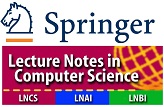Tracks
-
GECON 2015 will have the following tracks. Authors are encouraged to choose one track most relevant to their submission. Trackchairs can also reallocate papers if they are more relevant elsewhere:
Track 1. Economics of Big Data (Track Chairs: Dan Ma, Singapore Management University, Singapore; Maurizio Naldi, Universita di Roma Tor Vergata, Italy)
The advances of information technology have made it possible to monitor, collect, store, and process huge amounts of data (often personal ones). This phenomenon, which goes under the collective name of Big Data, is actually a double-edged sword, where the use of the same data may bring the same person or organization both benefits and damages. Though the impact of the adoption of the Big Data paradigm is wider than just the monetary aspect, analysing its economics represents a concrete way to see how it can be managed within companies and the society.
The aim of this track is to analyse the economic issues surrounding Big Data. A non exhaustive list of topics is the following.
· Cost of Big Data processing and mining: The unprecedented volume of Big Data requires computational tools that scale well, but nevertheless push up the cost of their analysis, so that it may raise concerns about the cost/benefit ratio. How do processing costs grow with the volume of data when the volume is so high? Does it always make sense to process such huge volumes of data?
· Pricing of raw Big Data: The accumulation of such huge volumes of raw data is creating a number of repositories which can now be accessed by people and organization who want to get hold of those data to process them for their own purposes. How can those huge chunks of raw data be priced? Are prices to be set according to an application-agnostic paradigm? Should the price reflect the volume of data?
· Privacy-related value of Big Data: A major issue of concern about Big Data is raised when those data are personal ones e.g., containing health or financial information associated, or susceptible to be associated, with our identity). Even abstracting from the violation of rights that their collection or use may entail, from an economic viewpoint their value may be related not just to the value they add to the operations of the organization mining through them but also to the likely damage their use may inflict on the individuals (or the organisations) to which those data pertain. Should the price of Big Data, or their assessed value in litigations, be related to the privacy they threaten?
· Economic impact of Big Data in several application domains (e.g., finance, insurance, manufacturing)
Track 2. Smart Grids (Track Chairs: Jose Angel Banares, Universidad de Zaragoza, Spain; Karim Djemame, University of Leeds, UK)
Electricity distribution and generation infrastructures are currently turning into Smart Grids for more efficient management. From a computational point of view, this involves demand forecast methods, state estimation techniques, and real-time monitoring, leading to communication and control of residential and commercial areas taking place at a fine granularity. As nearly in every sector, Smart Grids is a very broad area. The focus of this track will be to figure out, how cloud, grid or cluster could be used for enabling the behaviour-atomization of applications and devices in future orientated architecture of energy system.
· The adopted computational approach is based on concepts, methods and tools oriented to the processing of Continuous Data Streams. This is due to the critical characteristic of these problems is related to large volumes of data being generated in a distributed, stream fashion, and real-time -which is often agnostic of demand variation in a given geographical area. Processing such large scale streams can be compute and data intensive, and public or private Cloud platforms provide a scalable and flexible infrastructure for building such smart grid applications.
· Technical challenges and Business opportunities of advanced metering infrastructure (AMI): With AMI a two-way communication will be possible within an additional or integrated communication system. This information can be used for real-time demand-response optimization, where utilities forecast impending peak power usage and initiate load curtailment operations through pricing signals. Energy tariffs have an important role in order to build up consumer awareness and to enable future ICT based printings.
· Energy Management on the Cloud: High performing and scalable Services, in order to cost-effectively manage tens of millions of customer energy service delivery points, meters, and other distribution automation devices. Smart Grids provide a platform for traditional energy companies or new market entrants such as ICT companies, including SMEs, to develop new, innovative energy services while taking due account of data protection and cyber-security challenges. That dynamic should enhance competition in the retail market, incentivize reductions in greenhouse gas emissions and provide an opportunity for economic growth.
· Smart Energy Management System for Electric Vehicles (EV) infrastructure management. A unique characteristic of EVs in terms of power systems is that they are mobile devices expected to connect to various locations of electricity networks at different times of a day. Even a small number of uncontrolled vehicles charging at peak periods could significantly stress the distribution system, slowing EV adoption and requiring major electricity (generation and distribution) infrastructure investments.
Track 3. Community Nets and the Sharing Economy (Track Chairs: Felix Freitag, Universitat Politecnica de Catalunya, Spain; Dražen Lučanin, Vienna University of Technology, Austria)
In the sharing economy, underutilized resources of owners are provisioned for usage by others. While transactions of such resources can refer to specific resources of a defined duration based on bi-lateral agreements, a complex system arises if heterogeneous shared resources are brought together within the social network of a community. Community networks are an example of a communication infrastructure managed as a common resource for which technical knowledge, social skills and economic contributions are provisioned and shared by communities of citizens. Applying a bottom-up participatory process that integrates citizens' contributions, these communities have achieved to build and operate communication networks. The building of such a network is shared as well as their usage by the community, applying the principles of the network being open, free and neutral.
This session aims at serving as a meeting point for researchers and practitioners to discuss research and experiences on theoretical and practical challenges of the sharing economy applied to computing resources, and to contribute to the understanding of the socio-technical-economic interactions and solving challenges to enable the operation and growth of collectively built and shared computing systems.
Topics of interest for this session on community networks and the sharing economy include, but are not limited to:
· Socio-technical-economic models
· Incentive models to participate in shared computing systems
· Services and applications
· Cross-layer designs
· Sustainability and the involvement of users and businesses
· Tools for bootstrapping and running shared computing systems
· Clouds for community infrastructures
· Interoperation and federation of shared computing systems
· Performance modelling and evaluation
· Quality of service provisioning
· Quality of experience in shared computing systems
· Security and privacy
· Management of large-scale shared systems and data collection
Track 4. Economically Efficient Resource Allocation and Service Level Agreements (Track Chairs: Gheorghe Cosmin Silaghi, Babes-Bolyai University, Romania; Gilles Fedak, INRIA, University of Lyon, France)
Nowadays, various computing infrastructures including Clouds, Grids and Desktop Grids are available for running complex and highly demanding applications. Each infrastructure brings in some beneficial characteristics like high availability and reliability, plenty of computing and storage resources, cheap cost, while lagging behind on other like lack of security, limited resources, high price etc. An efficient resource allocation procedure and service level agreement establishment need to mitigate contradicting goals of service providers and consumers. Economically efficient resource allocation is mandatory when considering the fact that resources are in general limited, and computing goes green with regards to energy consumption.
In this context, we seek contributions describing algorithms, models, mechanisms towards an economically efficient resource allocation, leading towards improved SLA establishment protocols. Quantitative and qualitative contributions are welcome, addressing, but not limited, to the topics below:
· Advanced scheduling in heterogeneous infrastructures
· Decentralized or hierarchical scheduling
· Negotiation, enforcement and monitoring of Service Level Agreements
· Market mechanisms, auction models, and bidding protocols
· Decision support for providers, service selection and procurement
· Pricing schemes and revenue models
· Energy efficient resource allocation
· Resource allocation and scheduling for map-reduce and workflows
· Incentive design and strategic behavior
· Automated trading and bidding support tools
· Cost modeling, cost-benefit analysis, game theory
· Application requirements description language
· Quality of Service for application execution
· Application and Infrastructure Elasticity
Track 5. Economics of Software & Services (Track Chairs: Daniel S. Katz, University of Chicago & Argonne National Laboratory, USA; Neil Chue Hong, University of Edinburgh, UK)
Software has become an essential element of information technology (IT) systems, whether scientific, technical, academic, industrial, commercial, local, distributed, or social. Elements of software form an ecosystem, with new elements entering over time, and various elements being combined with each other and with computing, networking, and data elements within IT systems. Economics and economic models can be applied at many levels, including the overall software ecosystem, and to model the relationship between software and other parts of the IT system.
In this track, we are interested in new understandings of how software ecosystems and IT systems interrelate, including:
· development of novel economic models around software
· the use of existing economic models to gain new understanding
· the role of incentives, both novel and existing
· comparative understanding of software in distinct classes of IT systems
· business models, including revenue & pricing
· the role of economics in software development models
· community development and interaction within software ecosystems
· economic models which optimise software quality or software adoption
Track 6. Economics of Service Composition, Description, and Selection (Track Chair: Mathias Slawik, Technical University of Berlin, Germany)
As companies adopt the cloud computing paradigm to design IT infrastructures, the formal description of services, their assessment regarding organizational and legal requirements, as well as the selection of suitable services from public cloud marketplaces and service repositories becomes an important task. Yet, service description, assessment and selection in contemporary high-volume enterprise service marketplaces, such as Salesforce AppExchange and the Google Apps Marketplace, lack sophistication, leading to laborious, error-prone, and imprecise selection decisions. On the contrary, research on future cloud marketplaces proposes sophisticated knowledge representation (e.g., complex data models and ontologies) as well as automated reasoning to support description, assessment and selection. Yet, these approaches oftentimes are not catered to the needs of businesses, especially in their ease of use, simplicity, business pertinence, and technological maturity. This topic aims to bring together research on economic aspects of service description, assessment and selection, as well as on technologies for supporting and automating these business functions.
Topics include, but are not limited to:
· Service description languages, models, ontologies, and vocabularies
· Service variability and configurability
· Price modeling and calculation
· Service marketplaces and repositories
· Methods and technologies for service assessment and comparison
· Decision support for service selection
· Studies on the application of related scientific results in business environments
· Cloud market studies and datasets
· Usability of service description, assessment, and selection methods and technologies
· Progress on the maturity of related methods and technologies
Track 7. Economic Models of Networked Systems (Track chairs: Frank Pallas, Technical University of Berlin; Valentin Robu, Heriot-Watt University Edinburgh, UK)
Economic models can significantly help us to understand the behavior of networked systems as well as of the different stakeholders acting in, through, or upon such networked systems. In particular, we see the rigorous application of economic concepts like (but certainly not limited to)
· network effects,
· information asymmetries,
· transaction costs,
· organizational models,
· agency relations,
· institutions
· economic complexity models
as valuable means for understanding and predicting the consequences of concrete networked systems. Furthermore, such models can also provide highly useful input for deciding over different design options for engineering networked systems. Last but definitely not least, economic models can provide novel insights on how to best design networked systems within concrete application areas in order to appropriately address the specific givens and economic incentives shaping that application area, thus allowing for "economically inspired systems design".
We therefore search for contributions employing abstract economic models to understand, explain and predict system as well as social behavior in the context of networked systems and thereby supporting the concrete design and engineering of such systems. Quantitative and qualitative contributions are similarly welcome. Contributions providing explicit implications for concrete systems design and engineering are particularly appreciated.
Track 8. Legal Issues (Track Chairs: Nikolaus Forgo, University of Hannover, Germany; Eleni Kosta, Tilburg University, Netherlands)
Cloud Computing is not only a technical phenomenon, it also causes a lot of legal questions. In particular, issues of data protection, privacy, data security and intellectual property are in focus. The session will bring together experts from the legal and technical domain to foster interdisciplinary approaches. Papers could deal with, but are not limited to issues such as:
· Privacy by design/by default in cloud computing
· Protection of business secrets in cloud scenarios
· Transnational transfer of (personal) data in clouds
· Legal and technical security requirements in clouds
· Assignment of data protection roles in clouds - controller, processor, data subject
· State of the art in access control form a legal point of view
· Cooperation with Data Protection Supervisors in Cloud Computing
· Changes of the European legal framework on data protection and their impact on clouds
· Transfer of data into Non-EU-countries and its legal implications
· Trends in Big Data and their legal assessment
Track 9. Economic and Societal Impact (Track Chairs: Alfonso Alfonsi, Danielle Mezzana, Claudia Colonnello, Laboratorio di Scienze della Cittadinanza, Italy)
In contemporary societies, in the context of what some have called "digital transition", an increase in human agency, both online and offline, can be observed. This is resulting in an expansion of the available information and in the individuals’ increased capacity to act on reality as well as in broader opportunities which are inevitably connected to a greater exposure to new hazards (e.g., pertaining to the abuse of personal data). These dynamics can be also detected when specific ICT applications are concerned, such as cloud computing. This track deals with this issue, in particular focusing on societal and economic impacts of cloud computing, so as to provide useful contributions to both knowledge and governance. Social sciences, especially sociology, may offer in an interdisciplinary perspective a support to those who are interested to understand and make better use of cloud computing in the social context, also showing what is at stake with such technology and going in depth into the ways in which individuals and organizations use it. An analysis of societal and economic impacts of cloud computing may involve: a description and categorization of phenomena connected to cloud computing; the identification and mapping of its social impacts (in terms of social and economic costs affecting individuals’ “constitutive” aspects, such as rights, privacy, etc.); a continuous observation of what is happening in this domain (in terms of, e.g., evolutionary processes, new technologies or new policies). This approach may contribute to create a sort of shared thesaurus of social phenomena usable by various disciplines as well as by decision makers.
Contributions to the track may deal with issues such as:
· theories on the social and economic impacts of cloud computing
· methods of analysis of the social and economic impacts of cloud computing
· interdisciplinary approaches in the study of cloud computing
· cloud computing and big data
· cloud computing and social networks
· opportunities linked to cloud computing in everyday life
· cloud computing and changes in public administrations
· economic benefits of cloud computing
· barriers and facilitating factors for the spread of cloud computing
· actors involved in cloud computing
· cloud computing as a tool of scientific and technological research
· social costs of cloud computing
· economic costs of cloud computing
· regulations and policies preventing or limiting the negative impacts of cloud computing.








